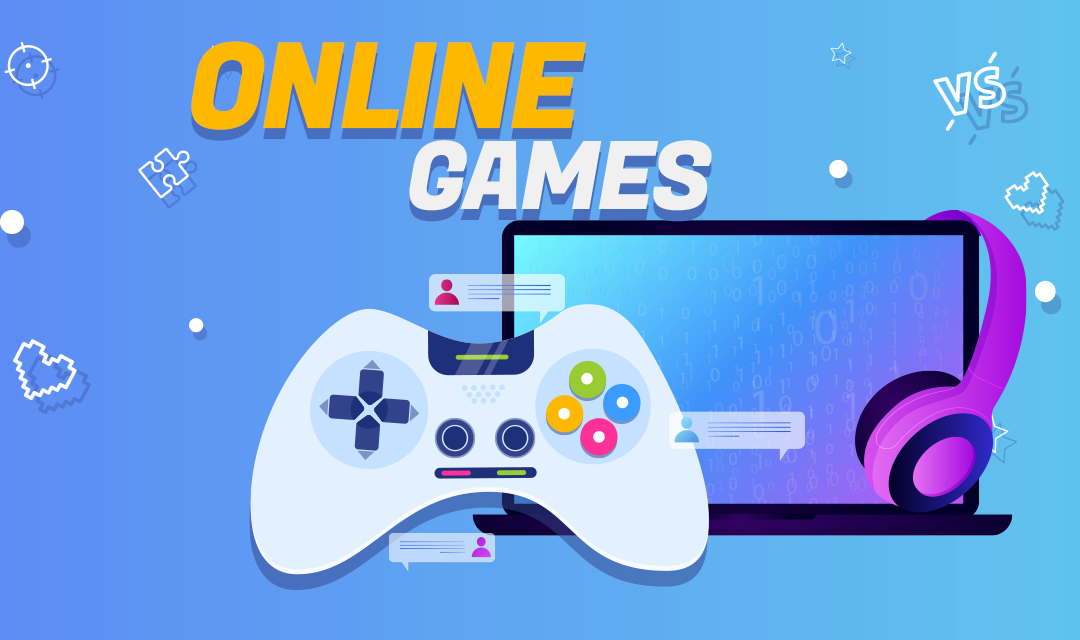The Evolution and Impact of Online Games: A 2024 Perspective
In recent years, online games have transcended their initial role as mere entertainment, evolving into a dynamic and influential segment of the global digital economy. As of 2024, online gaming has not only revolutionized how people play and interact but has also become a cultural phenomenon, shaping social interactions, competitive sports, and even educational practices. This article explores the current landscape of online games, examining their evolution, impact, and the trends shaping their future.
The Evolution of Online Games:
1. Early Beginnings
Online gaming began in the 1970s and 1980s with simple text-based games and early networked multiplayer experiences. Games like MUD (Multi-User Dungeon) and Warcraft: Orcs & Humans laid the groundwork for what would become a vast and varied industry. These early games provided the first glimpse into the potential of online interaction and multiplayer experiences.
2. The Rise of MMORPGs
The late 1990s and early 2000s saw the rise of Massively Multiplayer Online Role-Playing Games (MMORPGs), with titles like World of Warcraft and EverQuest leading the charge. These games introduced expansive virtual worlds and complex social dynamics, allowing players to interact, collaborate, and compete in ways previously unimaginable. They set the stage for the development of online communities and the integration of gaming into daily life.
3. The Modern Era
Today, online games encompass a wide range of genres and platforms, from mobile games and battle royale titles to virtual reality (VR) experiences. Innovations in technology have enabled more immersive and accessible gaming experiences, making it possible for players to engage in high-quality graphics, realistic simulations, and intricate gameplay from virtually anywhere.
Key Trends in Online Gaming:
1. Cross-Platform Play
One of the most significant trends in recent years is the push for cross-platform play. Games like Fortnite and Call of Duty: Warzone allow players on different consoles and devices to play together, breaking down barriers and fostering a more unified gaming community. This trend reflects a growing desire for inclusivity and connectivity within the gaming world.
2. eSports and Competitive Gaming
The rise of eSports has transformed online gaming into a legitimate sport with professional players, teams, and major tournaments. Events such as The International (Dota 2) and the League of Legends World Championship draw huge audiences and offer substantial prize pools, elevating gaming to new heights of professionalism and entertainment. The growing popularity of eSports is also driving investments in gaming infrastructure and broadcasting, further solidifying its role in the global sports landscape.
3. Mobile Gaming
Mobile gaming has surged in popularity, thanks to the widespread use of smartphones and tablets. Games like PUBG Mobile and Genshin Impact have achieved massive success by offering high-quality experiences on portable devices. The convenience of mobile gaming has expanded the audience and made gaming more accessible to people of all ages and backgrounds.
4. Virtual Reality (VR) and Augmented Reality (AR)
VR and AR technologies are revolutionizing online gaming by creating immersive environments and interactive experiences. Games like Beat Saber and Pokémon GO showcase the potential of these technologies to provide new forms of gameplay and engagement. As VR and AR continue to advance, they promise to push the boundaries of what is possible in gaming and offer even more exciting experiences for players.
5. Social and Educational Integration
Online games are increasingly being integrated into social and educational contexts. Platforms like Roblox and Minecraft are used for educational purposes, allowing students to explore complex concepts through interactive gameplay. Additionally, online games provide social spaces where players can connect, collaborate, and form communities, enhancing their social skills and fostering a sense of belonging.
Challenges and Considerations:
1. Online Safety and Privacy
With the growth of online gaming comes increased concerns about safety and privacy. Issues such as cyberbullying, data security, and online harassment are significant challenges that developers and players must address. Ensuring a safe and respectful gaming environment is crucial for maintaining the positive aspects of online gaming.
2. Monetization and In-Game Purchases
The monetization of online games through in-game purchases and microtransactions has sparked debate about its impact on players, particularly younger audiences. While these models can support game development and provide ongoing content, they also raise questions about accessibility and fair play.
3. Digital Addiction
The immersive nature of online games can sometimes lead to excessive gaming, impacting players’ daily lives and well-being. Recognizing and addressing digital addiction is important for promoting a balanced and healthy approach to gaming.
Conclusion:
Online games have come a long way from their early days, evolving into a multifaceted and influential aspect of modern life. As we move through 2024, the gaming industry continues to push boundaries with innovations in technology, gameplay, and social interaction. While challenges remain, the positive impact of online games—on entertainment, community building, and education—is undeniable. As the industry continues to grow and evolve, it will undoubtedly shape the future of entertainment and digital interaction in exciting and transformative ways.

